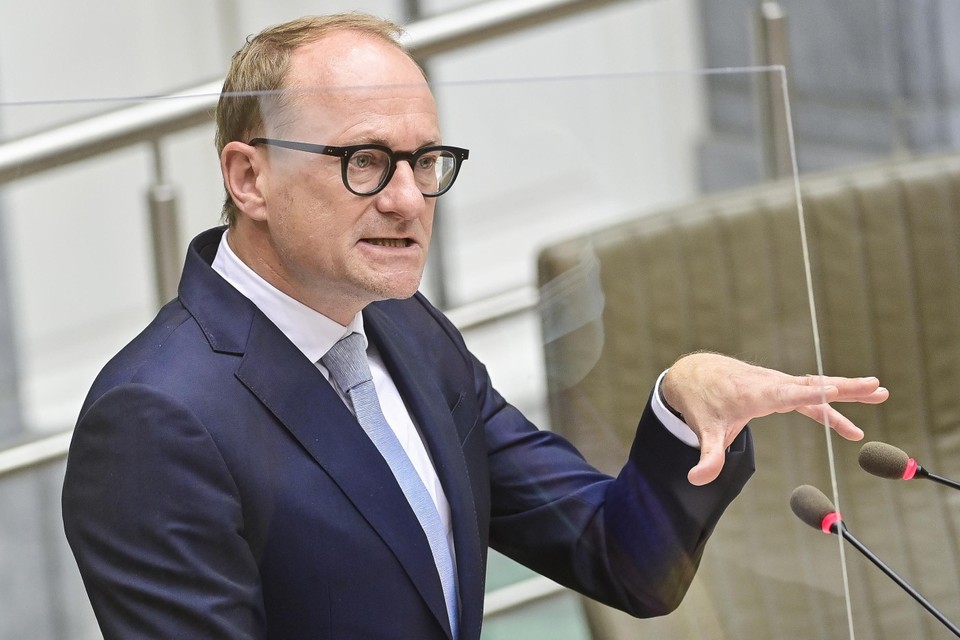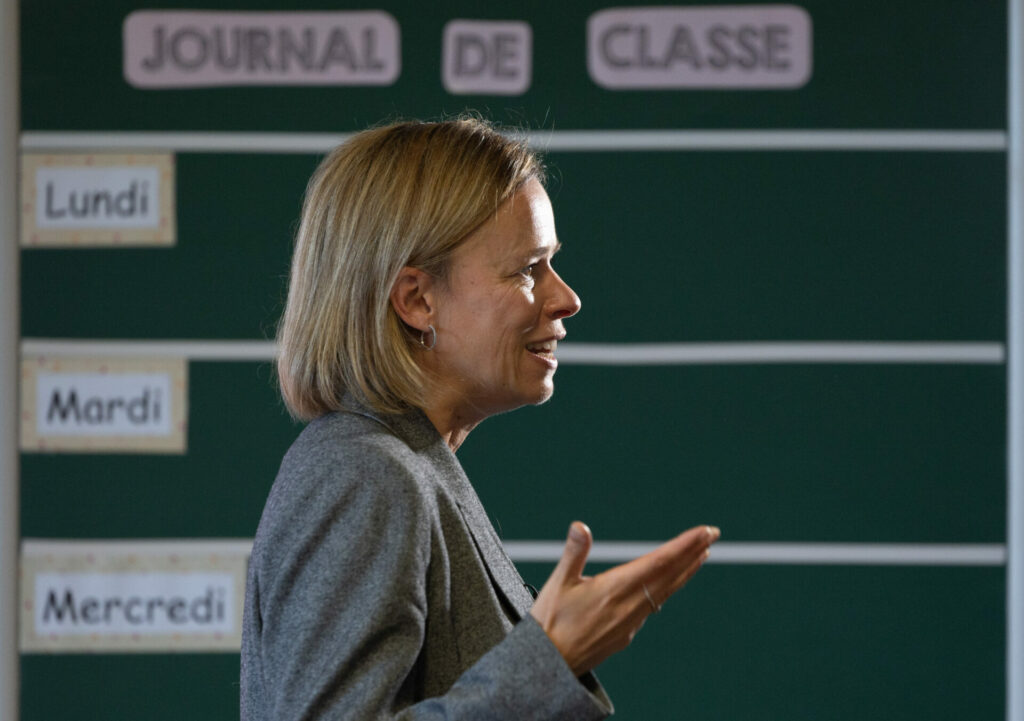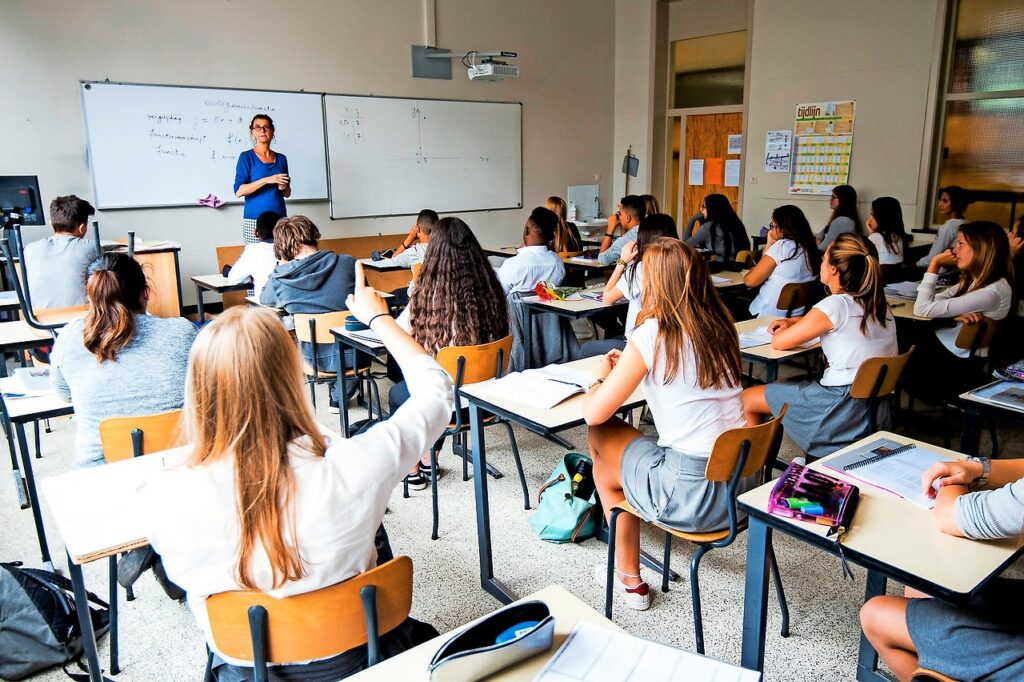The latest international assessment of students has highlighted an unprecedented drop in pupil performance in both Flemish and Francophone education. The findings have led politicians, experts in the field and commentators to heavily criticise the current education policy.
As the most important comparative survey between countries in terms of education, the OECD's Programme for International Student Assessment (PISA) results of 2022 did not paint education in Flanders or the Francophone community in a good light.
Education in Belgium is managed by the language communities rather than the Federal Government, meaning that PISA scores were not released for the country as a whole. Instead, one report was published for the country's Dutch-language education and another one for the French-speaking part.
In Dutch-language education (which traditionally always places high), the decline was particularly pronounced and performance levels fell considerably more quickly than in almost all other countries, especially for reading. French-speaking schools – which were already behind Flanders – also saw their scores drop, though not as steeply.
'Not good news at all'
"The results are not good news at all for Flemish education, and therefore for Flanders as a whole," Weyts' spokesperson Michaël Devoldere told The Brussels Times.
"We leave party political reflections on this to the commentators who have time for it. We focus – as we have in recent years – on structural reforms to turn the tide. Reforms that the assembled education experts also indicate are the right ones," he said.
In The French-speaking community, Education Minister Caroline Désir underlined that these schools seemingly withstood the effects of the crisis better than many other countries, but agreed that this result was not satisfactory. "The objective for the future is to achieve a real improvement in these results."
On both sides of Belgium's language border, the PISA results have sparked harsh criticism of the current education policies and debates about how to improve them – with no shortage of the political reflections that Weyts' office mentioned.

Flemish Minister for Education Ben Weyts. Credit: Belga
What's going wrong?
Critics have argued that mitigating circumstances help explain the overall international decline, Covid-19 in particular led to school closures and digital learning. Keeping young people focused in this digital age of smartphones and other devices is a constant challenge. Others have highlighted underlying societal inequalities that came to the fore.
"All of these are true, but there is one major problem with that explanation: it applies equally to other countries," said De Morgen's main political commentator Bart Eeckhout. "It does not explain why Flanders' decline, for example, is even greater than average on many points. In Ireland, they also have smartphones and Snapchat, and students there perform at a high level.”
Flemish Minister Weyts' policy has been trying to improve education quality for some time, but it does take years for the effects of these measures to become visible. New initiatives such as the language test for young children are sometimes controversial, but Eeckhout said that "if they are not politically misused, they do offer the opportunity to tackle pain points more quickly and in a more targeted manner."
'Threat to our prosperity'
Still, politicians of the opposing camp are unsatisfied by the explanation that the necessary reforms are sometimes painful, but "by definition slow". The Flemish ecologist Groen party said that after years of bold statements from N-VA, the final balance for education looks poor. "Minister Weyts was going to put the ship back on course. But instead of taking a turn, the ship is sinking," co-president Nadia Naji said.
Hannelore Goeman, leader of Flemish socialist party Vooruit, said the results indicate that the quality of education "continues to decline dramatically", adding that strong education is the "best guarantee" of a job and a good life.
"The fact that 23% of children cannot even extract a simple message from a text is downright shocking. That is nothing more or less than a threat to our prosperity. To the future of our children," she said.
Goeman referred to the teacher shortage, a lack of Dutch knowledge and exams that are being scrapped. "The Flemish Government plays with the talents of our children. They stand by and watch. Many loose ideas, no strategy. We must be more ambitious. We must invest in the best education because that is the engine of progress."

Education Minister for the French-speaking Community Caroline Désir. Credit: Belga/Benoit Doppagne
Multiple studies also show that "the primary cause of this disappointing report lies in the social segregation of schools dictated by our ultra-liberal management of the school market," said Appel pour une école démocratique (APED, Call for a Democratic School in English). They added that "substantial structural changes" were also needed and called on "progressive educational forces to not abandon the fight for a demanding school to the right."
Educational experts such as Professor Dirk Van Damme, OECD's former education chief and now chairing a committee to shape to future of education, stressed the need for more structure and focus on the basics.
"Language and maths, for example. And add world orientation and history to those foundations, but do not give in to social pressure to add all kinds of new domains," he said. "You will not hear me say that traffic education, financial literacy and sex education are unimportant, but you might be able to integrate them into language and maths.”
Related News
- Plans to punish parents if children score poorly on Dutch language skills criticised
- 'Ship is sinking': School performance levels of Belgian pupils slipping dramatically
The risk of these bad reports is that defeatism strikes, and while critics argued that it is important to state the facts plainly, they have also warned that "we must be careful not to squash every motivation."
"The curriculum must not only be clear and basic, the bar must also be set sufficiently high," Van Damme stressed. "Let us hope that this PISA bombshell causes a shock wave so that everyone – from politics to trade unions to umbrella organisations – realises the need to work together. This must be and remain our lowest PISA score ever: we owe it to our youth and their future."

